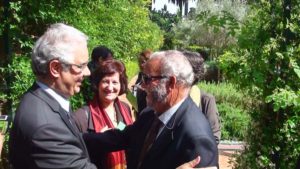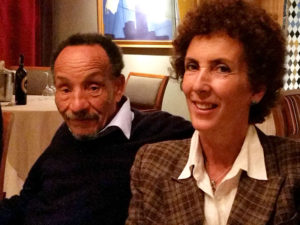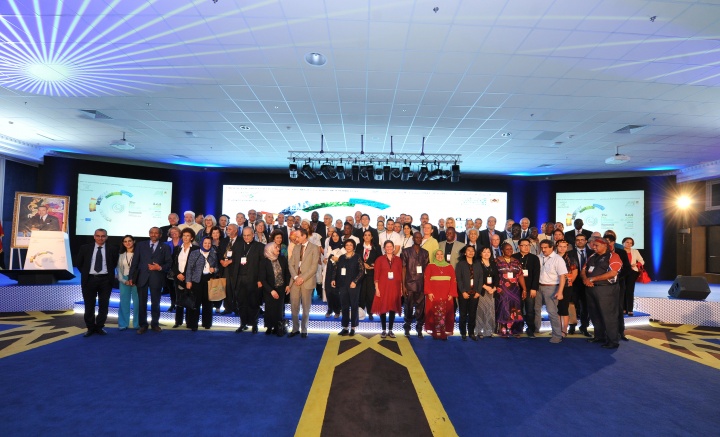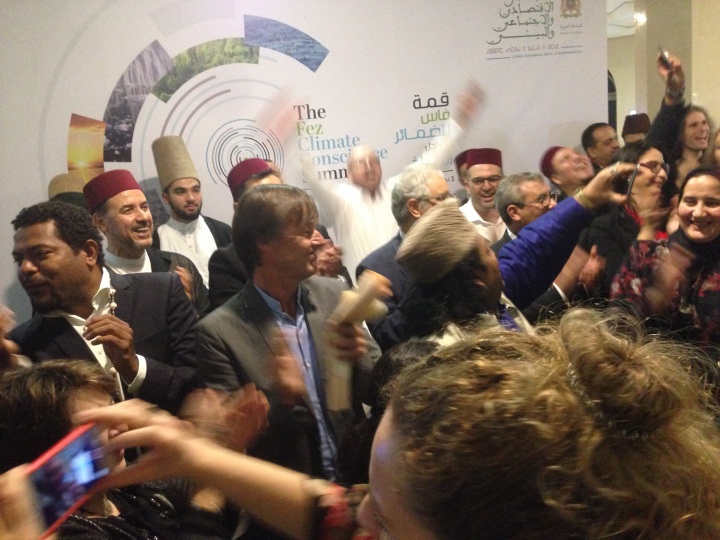Last November 3rd, the Summit of Conscience preceding the COP22 (the United Nation’s Climate Change Conference) was held in Fez. This year’s COP22 took place in Marrakesh from November 7th to the 18th.

FUNCI has taken part on this important international event, both in its presentation, held last May at the Jardin d’Essais de Rabat, on the occasion of the World Biodiversity Day, and in its recent celebration. Organized by the Moroccan Economic, Social and Environmental Council, along with the Rabita Mohammadia of Ulama (through the Centre for Interfaith Relations), it is the second edition of the summit launched in Paris in 2015 within the framework of the COP21, on the initiative of the French environmentalist and philosopher Nicolas Hulot.
The Summit of Conscience’s goal is to awaken the conscience of today’s spiritual leaders, philosophers, thinkers and opinion leaders. They should contribute to the protection of the environment, not only by raising awareness among the public opinion and the communities they are guiding, but also by pointing out to politicians and dignitaries the importance of including spiritual, ethical and cultural perspectives on the development of reports and studies and on the decision-taking processes.
The Summit of Conscience’s goal is to awaken the conscience of today’s spiritual leaders, philosophers, thinkers and opinion leaders
 Fez’s Summit endorsed the Mouvement Colibri’s slogan, launched by the French-Algerian agronomist and humanist Pierre Rabhi, “Je fais ma part”, who has been giving, these days, multitudinous lectures in Marrakesh, Casablanca and Rabat. Prominent personalities in the spiritual sphere from all around the globe assisted Fez’s gathering. Among them, the Argentinian Rabbi and Minister of Environment and Sustainability, Sergio Bergman; Ahmed Abbadi, Secretary General of the Moroccan Rabita Mohammadia of Ulama; Hana Abdallah Isa, Secretary General of the Christian Islamic Committee for the Protection of the Holy Sites in Jerusalem; Sorondo Sánchez, from the Pontifical Academy of Science; Susana Andrade, Candomblé priestess and parliamentary in Uruguay, and Jayanti Kirplani, director of the United Kingdom’s Brahma Kumaris World Spirituality University.
Fez’s Summit endorsed the Mouvement Colibri’s slogan, launched by the French-Algerian agronomist and humanist Pierre Rabhi, “Je fais ma part”, who has been giving, these days, multitudinous lectures in Marrakesh, Casablanca and Rabat. Prominent personalities in the spiritual sphere from all around the globe assisted Fez’s gathering. Among them, the Argentinian Rabbi and Minister of Environment and Sustainability, Sergio Bergman; Ahmed Abbadi, Secretary General of the Moroccan Rabita Mohammadia of Ulama; Hana Abdallah Isa, Secretary General of the Christian Islamic Committee for the Protection of the Holy Sites in Jerusalem; Sorondo Sánchez, from the Pontifical Academy of Science; Susana Andrade, Candomblé priestess and parliamentary in Uruguay, and Jayanti Kirplani, director of the United Kingdom’s Brahma Kumaris World Spirituality University.
All of them, along with many other participants, offered an overall perspective on the problems that affect the population and the communities in which they live, but also concrete answers and explanations on the place occupied by environmental notions in their cultures and creeds. Overall, they agreed on the need of an interreligious and intercultural understanding that fosters a common environmental conscience, as well as on the need of adopting more sober and less consumer lifestyles, in order to put a break to the culture of unlimited growth.
Fez’s Summit endorsed the Mouvement Colibri’s slogan, launched by the French-Algerian agronomist and humanist Pierre Rabhi, “Je fais ma part”, who has been giving, these days, multitudinous lectures in Marrakesh, Casablanca and Rabat.
Coexistence
Miguel Ángel Moratinos participated in representation of Spain, and the Alliance of Civilizations, and referred to the imperative of living in peace in this tumultuous world. He defined the concept of coexistence (“convivencia”), which as he confirmed, doesn’t exist in other languages of the world. Anthony Lecren, Minister of Ecology and Sustainable Development in New Caledonia, made a call to the necessity of establishing a climate justice solidary with the most disadvantaged. He explained that some of his country’s islands, inhabited by poor people, could disappear under the effects of climate change.
The youth was represented in a thematic workshop dedicated to the generational replacement in issues related to environmental responsibility. Among the participants stood out Camil Chaari, the 16 year-old Moroccan entrepreneur and ambassador of the Summit of Conscience who and has launched an interesting project on the collection and recycling of electronic waste, but also representatives of the environmental association The Blue Orange.
The meeting expressed its ludic and ecumenical side in “Polyphonie des Consciences”, a considerable representation of world music. There excelled Tibetan, Sephardim and Andalusian songs, along with Christian ditties and numerous Sufi songs from Morocco, Turkey and Pakistan.
At the end of the meeting, Nizar Baraka, Secretary-General of the Moroccan Economic and Environmental Council, and scientific commissioner for the COP22, read the Fez Declaration, as a way of concluding the interventions and workshops that were carried out throughout the whole conference. Among the main recommendations, he highlighted the following:
- To keep in mind climate change as a menace element for peace and coexistence.
- To reinforce the cultural and interreligious dialogue, to promote a common ethical environmental.
- To create university seats related to climate and inter-religiosity.
- To meet all consciousness in their great diversity, for the creation of a platform aiming at a universal climate conscience.
- To develop a Theo-Green-Map, as a data base for the religious initiatives linked to the environment and climate.
- To adopt an eco-friendly behavior in the construction and management of cultural and religious places.
- To hold UNESCO´s initiative aimed at preserving, consolidating and evaluating the knowledge, practices and local traditional expressions in relation with the environmental dimension.
- To create a global network of organizations and initiatives, in the field of the inter- religious and intercultural dialogue on climate, managed by the Economic Council and the Morrocan Rabita Mohammadia.
This post is available in: English Español


